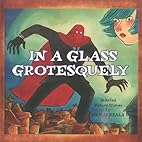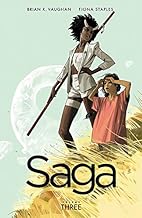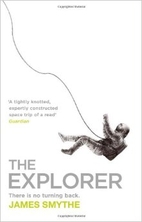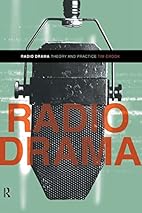
Another solid Richard Sala book, small in format, large in illustration. Sala does what he does best – which is faux gothic.
Overall - There is a fiendish super-villain, a dastardly plot, lots of intrigue and plenty of fun.
Saga Vol 2 & Saga Vol 3 by Brian K Vaughan


Continuing the saga of Saga – these two volumes skip the plot both forwards and backwards but no spoilers here. If you’ve not checked this series out yet then you should. It’s set in a mixed up universe with a kind of Romeo and Juliet type plot – boy and girl on opposite sides of a very bitter war fall in love, but unlike Shakespeare they have a baby that everyone wants for different reason. Throw in psychotic aliens, bounty hunters, one eyed authors, a tree spaceship and other oddness and mix well. It just works and does so with beautiful art. (I especially liked the first impression of the author)
Overall – A great series that is, so far, getting better with each issue.
The explorer by James Smythe

In the near future commercial interests design a space mission to reinvigorate interest in space exploration. A crew is chosen, to include Cormac, a reporter who will blog the mission, pilots and crew and a scientist. The mission is to travel to the furthest point in space ever travelled to by a human manned craft and come back heroes. We join the mission when Cormac is the only crew member left, the mission gone awry, with him wallowing in his despair at his own ignorance of how to turn things round (literally). As the plot progresses we get to find out a lot more about Cormac and how the crew was picked, Cormac’s relationships to them and his wife and more on why, and how, the mission goes so spectacularly wrong. The book is slightly flawed in that it requires you to just accept what’s happening in the middle parts, which don’t actually make sense till the later parts so requires a bit of trust from the reader. I think this flaw could account for some of the poor reviews, as if it hadn’t been for a recommendation I may have questioned it much more, which would have made the trip a lot more wobbly than it was.
Overall – Interesting premise, well executed to make a very entertaining read.
Radio Drama by Tim Crook

Ostensibly a handbook for how to write radio drama. The tagline says “in theory and practise” but it seems pretty light on practise and very heavy on theory. I think Mr Crook wants to be an academic. The first section is about radio history, the second on communications theory, the third contains several chapters on radio flaps, especially the famous one caused by Orson Wells with War of the Worlds (under the title “live improvisations”). There are also chapters on how “drama guru x’s” theory could be adapted to radio drama. There is useful stuff in here but its buried deep. I was bored by the time I came across the useful stuff, which was more about how radio drama is produced and directed, rather than written. Partly my disappointment with this book is in misunderstanding what it offers, and therefore not getting what I wanted from such a book, but maybe it’s also being mis-sold – Radio Drama brings together the practical skills needed for radio drams, such as directing, writing and sound design, with media history and communication theory. Using extracts from scripts and analysing radio broadcasts from America, Britain, Canada and Australia, the book explores the practicalities of producing drama for radio. That’s from the blurb so that’s what I was expecting, there are scripts in one section of the book, taking up maybe two pages in total.
Overall - Mr Crook didn’t really know what his brief was.
The anatomy of prose by Marjorie Boulton

Boulton wrote Anatomy of poetry and then felt sure that someone would have already done the same for prose, to help teach English, when she discovered no-one had she decided to write it herself. This is a bit dated, having been written in the 1950’s, but still worthwhile reading. Boulton performs a kind of Grey’s Anatomy on prose. Cataloguing all the many different types, what it consists of, rhetoric devices and prose rhythm (for which her obviously deep knowledge of poetry comes in handy). Boulton uses examples from both classic and modern (at the time – Steinbeck for example) literature and the explanations are always very clear and understandable.
Overall – A good little book in giving you an appreciation for prose. Useful for both readers and writers.
Writing into the dark by Dean Wesley Smith

Mr Smith is a seat of your pants writer, but he also rewrites as he goes, circling back every few thousand words. It’s readable in one session (it’s short) and it does have some good tips. But I think Mr Smith assumes that you’re a good enough writer to comply with Heinlein’s 3rd rule of writing (avoid rewriting) and not all writers are. It is nice to see a guide to “pantsing” though since most “how to write” books bang on and on about how important it is to outline. Personally I fall in between the two extremes of planning everything to the nth degree and completely making it up as you go along, having a vague and sketchy plan that I sometimes modify as I go.
Overall – I didn’t get much useful stuff from this, but it does get good reviews so maybe if you a writer looking for tips on how to pants it then this may be for you.





